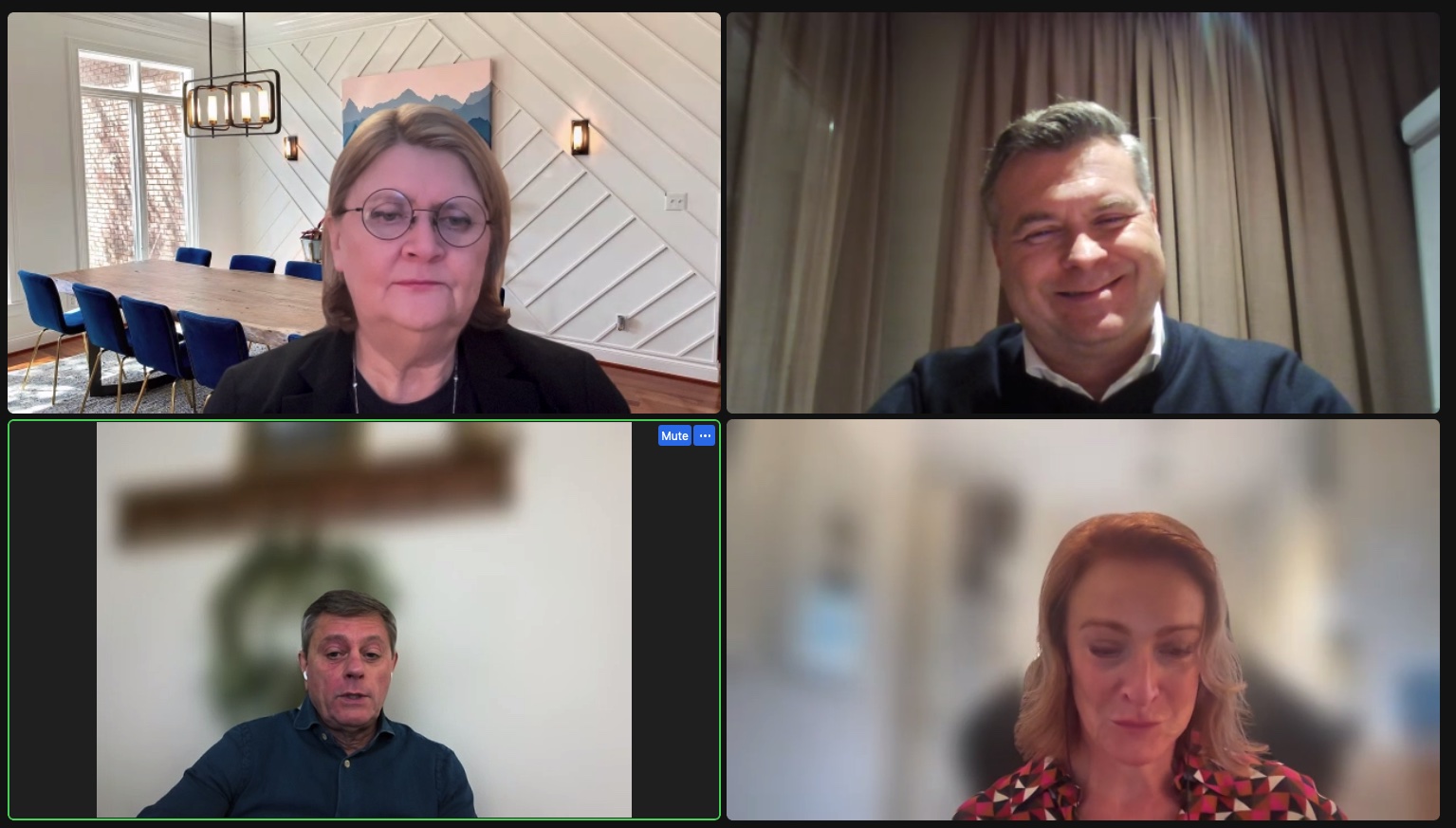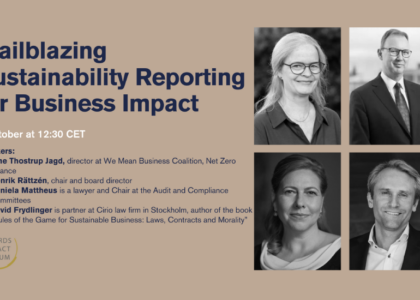In an era marked by rapid technological advancements and growing environmental concerns, the role of board oversight has never been more critical. As organizations navigate through the complexities of integrating Artificial Intelligence (AI) and embedding sustainable practices, board members find themselves at the forefront of steering these monumental shifts.
We invited prominent speakers from academia and professional NEDs, to share their perspectives and discuss with participating board members. We shared and discussed board dilemmas related to the challenges that board members face related to Risk, Opportunity and Strategic integration including AI.
The exchange featured speakers, including :
- Professor Stanislav Shekshnia, INSEAD,
- Henrik Forzelius, PhD Candidate & NED,
- Anne Årneby, Professional Board Member
- Facilitation by Liselotte Engstam, Chair Boards Impact Forum and chair and NED at listed and private companies
Boards Impact Forums Chair, Liselotte Engstam, started by shedding light on the current dilemmas faced by boards regarding sustainability, based one the research “Board Practices for Long Term Boards”. She emphasized the challenges related to materiality assessment and strategic integration.
Henrik Forzelius then aligned his presentation to the World Economic Forum’s “Principles for Effective Climate Governance”, focusing on principles 4 and 5, and connecting them to the earlier mentioned research. Henrik stressed that gradual disruption is harder to address versus radical one-time disruption, and sustainability can be considered a disruptive force. Therefore, boards need to act with speed and proactively make decisions without knowing all the facts, as if it was a fast disruption.

Professor Stanislav Shekshnia focused on the the mindset of the board chair, which sets the tone for how sustainability is perceived within the boardroom. Chairs must recognize that sustainability is not about sacrificing shareholder value for a cause; instead, it’s about integrating sustainability into strategy and operations. Sustainability and profitability should go hand in hand. Furthermore, the board chair controls the agenda, which is a powerful tool for influencing board discussions. Sustainability should be a recurring item on the board’s agenda, ensuring it is consistently addressed. By doing so, sustainability becomes a lens through which other critical topics are viewed and evaluated.
The conversation followed with NED Anne Årneby, an experienced CEO and CMO, emphasizing the importance of making a change on boards, especially for newcomers. She stressed the need for board members to actively voice their opinions and drive positive transformations.

Anne Årneby stressed the importance of visualizing the value chain within a company. Many organizations fail to grasp the significance of presenting and sharing a common image of their current state and future potential. This visualization aids in discussions about strategic development, market positioning, competitive advantage, and risk assessment. Anne shared her experience of initiating this process in two boards, emphasizing that it accelerates decision-making.
The conversation shifted towards the knowledge gap between board members and executive management, particularly regarding sustainability and digitalization. Anne suggested that leveraging research findings can be instrumental in influencing board decisions. By relying on credible research, board members can present well-informed ideas and contribute effectively to the discussion.
Participants voted on the most challenging dilemmas, where Board Training and being More Compliance than Strategy Driven was identified as most hindering.

During breakout sessions, participants engaged in board practice discussions. Participants recognized the knowledge gap within the board and discussed the need to bring in experts, revisit the company’s purpose and values, and explore innovation opportunities. This exercise highlighted the importance of addressing sustainability within the context of a company’s mission.

The following panel discussed the increasing influence of AI in board work. AI can serve as a valuable tool for directors, offering suggestions and insights. It is also crucial for directors to improve their ability to formulate questions effectively for AI systems. The panel agreed that AI should be viewed as a supportive resource for board members.
In conclusion, the evolving landscape of board engagement, particularly concerning sustainability, demands proactive measures. Boards should actively engage with sustainability challenges, visualize their value chains, bridge knowledge gaps, and embrace AI as a valuable tool. These discussions pave the way for a more sustainable and forward-thinking approach in boardrooms. The journey towards sustainability requires collaboration, education, and a willingness to adapt to the changing times.
This live exchange is also part of the online education ”Boards Oversight of Sustainability for Innovation”.
___________
About Boards Impact Forum
The mentioned events are arranged by Boards Impact Forum in collaboration with World Economic Forum (Non Profit Board Network, partnering with Board Networks , INSEAD Corporate Governance Centre, Digoshen and Next Agents )








Recent Comments